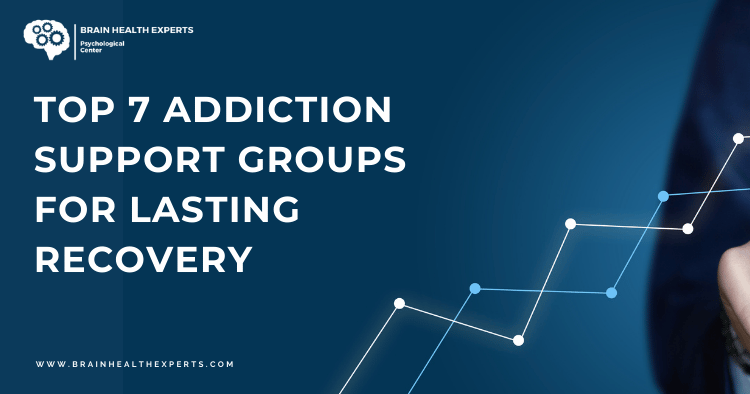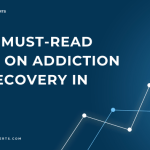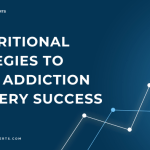Introduction
Addiction can feel like an insurmountable challenge, but there are paths to recovery that offer support, guidance, and community. Support groups play a vital role in helping individuals not only quit their substance use but also build a lasting foundation for a healthy, fulfilling life. In this article, we’ll explore the top seven addiction support groups that have proven effective for many on their journey to recovery. Also, look for 10 proven strategies to overcome low self-esteem today and 5 inspiring case studies on addiction recovery for more insights.
1. Alcoholics Anonymous (AA)
Established in 1935, Alcoholics Anonymous (AA) is perhaps the most well-known support group for individuals struggling with alcohol addiction. AA operates on a 12-step program that encourages individuals to acknowledge their struggles, seek help, and make amends with themselves and others.
Key Features:
- Meetings: AA hosts meetings worldwide, allowing members to share their experiences and support each other.
- Anonymity: The principle of anonymity helps create a safe space for individuals to express themselves without fear of judgment.
- Literature: AA provides a wealth of literature, including the “Big Book,” which offers personal stories and insights into the recovery process.
“Community is the backbone of recovery. In AA, you find not just a support system but a family that understands your journey.”
For more information, visit Alcoholics Anonymous.
2. Narcotics Anonymous (NA)
Similar to AA but focused on drug addiction, Narcotics Anonymous (NA) provides a supportive environment for those struggling with substance use disorders. Founded in 1953, NA has a global outreach, offering hope and a pathway to recovery.
Key Features:
- Diverse Membership: NA welcomes anyone battling addiction, regardless of their drug of choice.
- 12-Step Program: Like AA, NA employs a 12-step framework that encourages self-reflection and accountability.
- Resources: NA offers literature and online resources to support recovery efforts.
“NA is not just about recovery from drugs; it’s about fostering hope and resilience in the face of adversity.”
For additional details, check out Narcotics Anonymous.
3. SMART Recovery
SMART Recovery (Self-Management and Recovery Training) is an alternative to traditional 12-step programs. Founded in 1994, it is based on scientific principles and emphasizes self-empowerment.
Key Features:
- Four-Point Program: SMART Recovery focuses on building motivation, coping with urges, managing thoughts and behaviors, and leading a balanced life.
- Tools and Techniques: Members learn practical tools for managing cravings and triggers, making it a great fit for those who prefer a more structured approach.
- Online and In-Person Meetings: SMART Recovery offers both types of meetings, making it accessible to everyone.
“SMART Recovery empowers individuals to take charge of their recovery journey, using science and self-help techniques to pave the way.”
Learn more at SMART Recovery.
4. Celebrate Recovery
Celebrate Recovery is a Christian-based support group that addresses a variety of addictions and compulsive behaviors. Founded in 199, Celebrate Recovery combines faith with the recovery process.
Key Features:
- Spiritual Focus: The program emphasizes reliance on God and the teachings of Jesus Christ.
- Community: Celebrate Recovery fosters a sense of community and acceptance, offering members a chance to connect with others who share similar struggles.
- Comprehensive Approach: The program addresses not only addiction but also co-occurring issues like trauma and mental health challenges.
“Celebrate Recovery offers a spiritual roadmap for healing, where faith and community intertwine to foster lasting change.”
For more information, visit Celebrate Recovery.
5. Al-Anon Family Groups
Al-Anon is a support group for friends and family members of individuals struggling with alcohol addiction. This group helps loved ones cope with the effects of addiction and promotes healing within families.
Key Features:
- Support for Loved Ones: Al-Anon provides a safe space for family members to share their experiences and receive support.
- Literature and Resources: Al-Anon offers extensive literature that addresses the challenges faced by those who love someone with an addiction.
- Global Network: With meetings worldwide, Al-Anon ensures that families can find support no matter where they are.
“Al-Anon serves as a lifeline for families, reminding them that they are not alone and that healing is possible for both the individual and the family unit.”
To learn more, visit Al-Anon.
6. Women for Sobriety
Founded in 1975, Women for Sobriety (WFS) is a support group specifically designed for women dealing with addiction. This program focuses on empowerment and personal growth, offering a unique perspective on recovery.
Key Features:
- Acceptance and Empowerment: WFS encourages women to accept their feelings and find strength in their experiences.
- 13 Statements of Recovery: Instead of the traditional 12 steps, WFS employs 13 affirmations that promote positive thinking and self-empowerment.
- Community: The group creates a nurturing environment where women can connect and support each other.
“Women for Sobriety is a beacon of hope, empowering women to reclaim their lives and celebrate their unique journeys.”
For more information about WFS, visit Women for Sobriety.
7. Refuge Recovery
Refuge Recovery is a mindfulness-based addiction recovery community that integrates Buddhist principles with recovery practices. Founded in 2015, it aims to provide a secular option for those seeking recovery support.
Key Features:
- Mindfulness Practices: Members learn mindfulness techniques that can help manage cravings and promote emotional well-being.
- Community: Refuge Recovery fosters a compassionate community focused on healing and recovery.
- Secular Approach: The program is designed for individuals who may not resonate with traditional spiritual frameworks.
“Refuge Recovery blends mindfulness with recovery, offering a compassionate space for individuals to heal without religious constraints.”
For more details, visit Refuge Recovery.
Conclusion
The journey to recovery is deeply personal and varies from person to person. Support groups offer essential resources and community to help individuals navigate their struggles with addiction. Whether you prefer a 12-step program, a spiritual approach, or a more secular perspective, there’s a support group that can meet your needs. Remember, seeking help is a sign of strength, and you don’t have to face this journey alone.
“Every step you take in recovery is a step toward a brighter, healthier future. Embrace the journey and the support around you.”
FAQs
1. How do I find a support group in my area?
You can search online for local meetings or visit the websites of the support groups mentioned above, which often have directories of meetings by location.
2. Are support groups free?
Most support groups are free to attend, though some may accept donations to help cover costs.
3. Do I have to speak at meetings?
No, participation is voluntary. You can choose to listen and share only when you feel comfortable.
4. Can I bring a friend or family member?
Many support groups welcome friends and family, especially those like Al-Anon, which is designed for loved ones of individuals struggling with addiction.
5. What if I don’t feel comfortable in a group setting?
If group meetings aren’t right for you, consider seeking individual counseling or therapy as an alternative. Many professionals specialize in addiction recovery.
By exploring these support options, you can take the first step toward lasting recovery and a brighter future. Remember, every day is a new chance to make positive changes in your life!
For more insights on how positive thinking can boost your journey to recovery, check out 10 ways positive thinking boosts your resilience in tough times.





